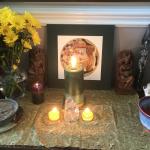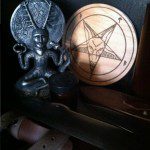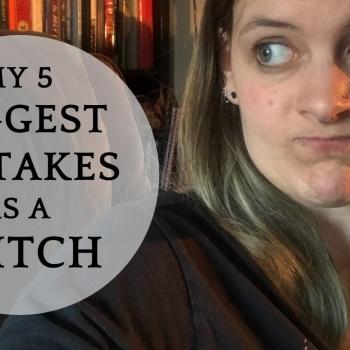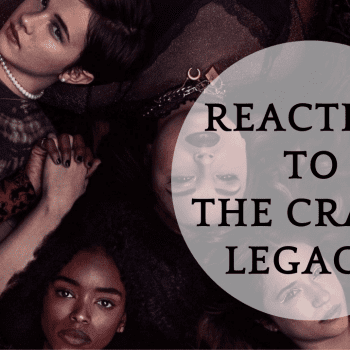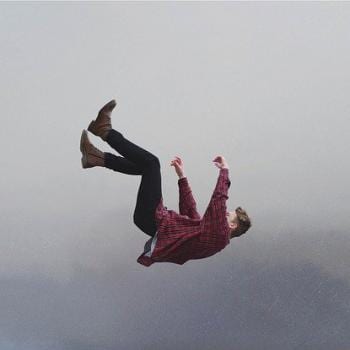 My friend and fellow covenleader, Jason Mankey, wrote a blog recently about some of the signs that indicate that a coven is healthy. It’s a good article, and I was happy to be able to check off almost all of the items he includes. One, however, really struck me:
My friend and fellow covenleader, Jason Mankey, wrote a blog recently about some of the signs that indicate that a coven is healthy. It’s a good article, and I was happy to be able to check off almost all of the items he includes. One, however, really struck me:
Perfect Love and Trust Means Away from the Circle too! You don’t have to hang out with the coven all the time, but if you aren’t friends with your fellow Witches outside of circle something is probably wrong.
Jason includes this tidbit in a section about general members of a coven, not necessarily its leaders, and a lot of the time I think he’s right. I want to nuance this a bit though, veer off a ways, and add the leadership bit back in. This is something I personally struggle with, and I had a conversation last week that directly came out of reading Jason’s post.
The Covenleader and Their Initiates
I love my covenmates. I need to lead with that. I also love the people in my parent coven, even though I haven’t talked to some of then in ages. I agree that love and trust should be the cornerstones of coven work, 100%.
But love doesn’t inherently have anything to do with friendship.
The thing about being in any kind of hierarchical organization is that there’s a power differential. When there’s a power differential, friendship can be a real problem.
Here’s an example of what I’m talking about:
I’m a high school teacher. Before that, I lectured at a university and tutored elementary-aged children in literacy. I’ve had several students who have made the mistake of thinking that we’re friends. Hey, I made the same mistake as a precocious teenager and university student, too. When you seem to have more in common with your teachers and you have a rapport, it’s easy to feel like you’re friends. It feels good to have special attention and to feel like you have supportive mentors in your life. You trust them. But any experienced teacher can tell you how incredibly dangerous a position this is for both the teacher and the student.
As a teacher, my first responsibility is to that student’s education. I control their grade, which ultimately impacts whether or not they graduate. I can write recommendation letters (or not), I impact which level of class they move onto next year, and I write the syllabus they’re expected to complete. I’m usually the person standing between them and the administration, and I’ve discovered that most parents will take my word over their child’s when it comes to the day-to-day. Whether or not it’s in my contract, there’s also the tacit assumption (and, in some places, the explicit assumption) that I have a responsibility toward the moral development of my students. Right and wrong. A sense of right behavior. Respect. These are all things I’m expected to impart in some way.
This is power over. Wielded well and compassionately, it serves the student and not the teacher. My training as an educator is largely about how to use that power well to help the student (whether we’re talking about adults or children). But it’s still power over, no matter how we paint it.
When grades come out and students realize that they didn’t get special treatment, or they didn’t get the grade they thought they earned, feelings get seriously hurt. Abuse of this power is also what leads to the horror stories that we hear about in teacher/student relationships: sexual abuse, manipulation, and other kinds of boundary violations. Schools have very strict policies about allowing kids to follow teachers on social media, for example, and this is why. It’s all about power and the potential for its misuse. As a teacher, I have power over my students. My experience, my training, and my final licensure are all symbolic of the trust that the state has placed in me to wield that power. When you send your kids to public school, you’re extending that same trust to someone just like me.
This is not how friendship operates, and it’d a hard lesson for young people to learn. I love my kids, but I am not their friend.
My role as a high priestess is different from my job as a classroom teacher, but there are some similar themes.
As the high priestess, I have total say over who is and isn’t allowed in my covenstead. I own it. I decide who is and isn’t initiated. I decide if and when people get elevated. I decide who gets to do what in circle. I have complete and total control over who gets to be a Gardnerian in Foxfire Coven. If anyone else gets a say (and they do, because I’m not actually an asshole), it’s only because I decided to run Foxfire that way instead of another way.
I delegate and I listen and I ask for other input and I heed the advice I’m given, but the fact doesn’t change: I ultimately hold that power, for good or ill.
That said, my initiates are grown-ass adults. They can make different decisions. They can circle without me, they can find another coven, they can go home and make up their own rituals and call it whatever they want. That’s totally fine. They’re witches. But if they want to be in Foxfire, they have to abide by the rules that I set, which are ultimately the rules of my tradition, as interpreted by me. If you belong to a traditional coven of practically any variety, there’s a better than fair chance that you’re subject to someone with a similar type of power (and if this sounds awful to you, there are lots of egalitarian and solitary traditions that arose in response to these models, so other options exist!).
That’s not all that different from how power works in my classroom, minus the grown-ass adult part. And the part about being witches (most of the time).
Most of the emotional labor that a coven leader does is related to wielding this power well. I can’t tell you how many sleepless nights I’ve had worrying about whether I’d make the right decision. How many times I’ve cried because I didn’t have a clear answer and had been given conflicting advice. How worried I’ve been that I’d shame by own initiators, or hurt one of my initiates. I’ve never been a parent, but I will say that it’s the same kind of anxiety I feel when I think about protecting and teaching the kids who come through my classroom.
If there’s a hierarchy, there’s a power differential by definition. And healthy friendships do not include power differentials. In a friendship, one friend may be more outgoing or influential than another, but they don’t get say over the choices and pursuits of the other. That kind of power imbalance leads to badness in what’s supposed to be a relationship of equals. A hierarchy is not a relationship of equals.
Power isn’t inherently bad, but it takes a lot of care to wield, and I think the best leaders do struggle with it. My choices impact others, so I work really hard to make good ones. And—full disclaimer—I AM friends with my initiates. But those friendships are tricky, and they don’t operate like typical friendships (so far there’s no My Little Pony episode to help deal with most of the things I’ve encountered in coven, but I’m holding out hope). We do a lot of compartmentalizing. We even actively use our Craft names versus our mundane names for this purpose. It works a lot of the time, but it’s a lot trickier, especially for me, because I’m still the one with the power in the coven. I usually have to choose between being a good friend and being a good high priestess. Trying to do both often leads to double failure. That doesn’t change until they hive and start their own groups with their own initiates. Only then can we truly be peers. I’ll never forget the day I initiated my first outer court students and my own high priestess took me out on the back porch to share a morning cocktail. She said, “My dear, now we can be friends.”
Of course, even that isn’t completely true. She’s still got decades of experience on me, after all.
What about between covenmates?
All that said, initiates and students may of course be friends with each other, and this is awesome to see. I love it when folks get together outside of circle and hang out, whether their activities are magical or not. I engage in that social time, too. There isn’t that same power differential between initiates in a coven, even across degree levels. Covenmates share a level of intimacy that’s pretty hard to match in other spaces.
But it’s also okay if they’re not friends.
You can love and trust someone without hanging out with them. Friendships develop out of mutual interests, shared life experiences, common languages, and, fundamentally, desire.
I’ve been in three traditional covens where the age ranges have spanned almost thirty years. The forty-somethings are busy with kids and mortgages and spouses and careers of many decades and all kinds of other things pertinent to where they are in this stage of life. The twenty-somethings are busy with school and new jobs and finding their passions and building relationships and figuring out what their futures look like. They don’t necessarily have common ground outside of their Craft pursuits. Just in my coven, I’ve got extrovert and introverts, butterflies and loners. I’ve got artists and office workers, students and teachers. Parents and childfree-by-choicers. I’ve got vegetarians and hunters, gun owners and pacifists.
We have wildly different professional lives and personal schedules. We vote differently. We have different hobbies. We have different aspirations. We have different attitudes about what the Craft is for. We are different, and it shouldn’t surprise anyone that some of us are closer than others. That’s been true in every coven I’ve been in, and I think it’s natural and normal.
What we have in common—that critical thing that makes the coven work—is our magical alignment, our trust in each other, and our love for our tradition. We love each other. We respect each other. When it’s time for circle, we can set our differences aside and work together and do something amazing.
It’s not a requirement that covenmates also spend social time together, and I suspect that many witches in the earliest Wiccan covens didn’t. Personally, I also think that one of the things that makes my coven work is that we are so different. When we only hang out with people like ourselves, it becomes really easy to stop challenging ourselves and growing. We may end up creating echo chambers where only the ideas we agree with circulate. I’ve learned the most from the people who are different from me.
There’s a limit to that, sure. The person still needs to be a good fit for the group as a whole, and they need to jive with the fundamental personality of the coven, but they don’t have to be potential best friends with everyone.
This is on my mind a lot lately both because I’m in a position of authority that royally stresses me out sometimes, and because the wider community continues to struggle with abuse of that kind of authority. It’s heartbreaking to hear yet more stories about Pagan mentors mistreating their students (and I think it would help to look at some of the rules we maintain in traditional classrooms that are designed to curtail some of these problems). As a traditional Wiccan, I’ve also experienced (from all sides) that realization that your covenmates aren’t your best friends, or that your high priest or high priestess doesn’t see you as a peer. This is really hard stuff, and I’m glad the conversation came up!

